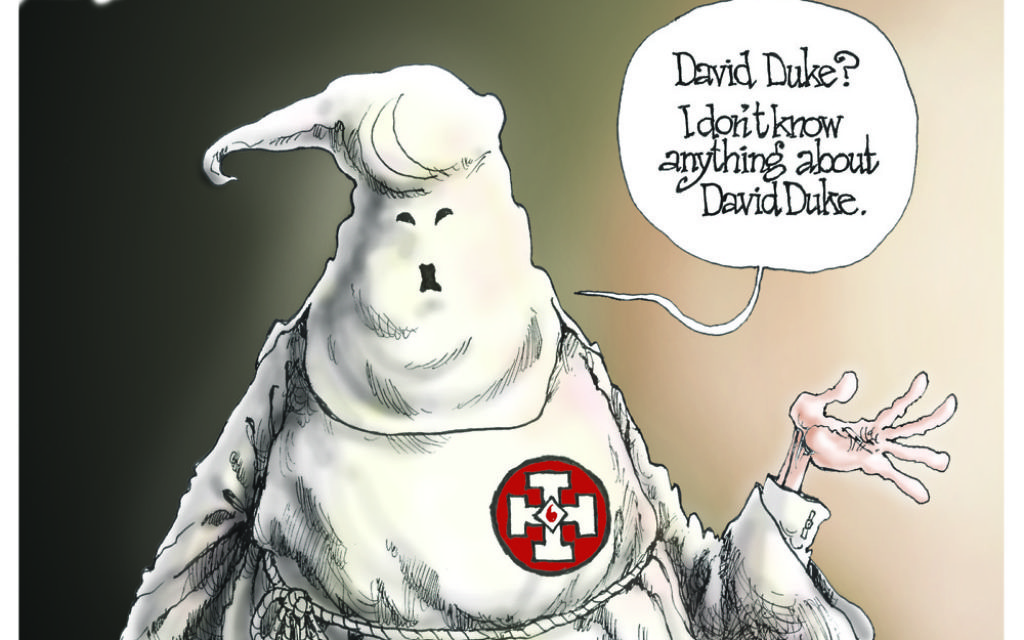Fighting Fascism With Facts
Much of the debate over Republican presidential nominee Donald Trump involves parallels to the rise of fascist leaders. I lost track of the number of times I saw tweets and Facebook posts during his nomination acceptance speech along the lines of “This speech was better in the original German.”
Yeah, and that comment was funnier when Molly Ivins made it about a Pat Buchanan speech more than two decades ago — and I’m sure the joke goes back much further than that. One of the wonders of the social media age is that we all get to show off how clever we think we are (as opposed to the good old days, when only newspaper columnists and standup comedians had that pleasure).
I think the idea of Trump as some sort of new-age Hitler or, more realistically, an American Putin is overblown, in part because, unlike the evil dictators of modern history, he shows no evidence of hard-core beliefs about anything and because such dictators arise only in places going through crisis while lacking any real foundation in democracy.
Get The AJT Newsletter by email and never miss our top stories Free Sign Up
But I’m all for people arguing out the evidence and the implications in the AJT and other media. Elections are all about projections and possibilities, and we’d be failing in our responsibilities if we waited until Nov. 9 to talk about what a candidate’s ideas will mean the next four years.
A contrary viewpoint says Trump gains legitimacy when people analyze his proposals and fact-check his speeches. Taking him seriously makes him a serious candidate. If the media had treated him like a joke last summer and ignored him instead of giving him free TV time as political entertainment, his campaign would have faded away as quickly as Jim Gilmore’s.
It’s a debate I participated in as a college sophomore working on the Tulane University student newspaper.
We weren’t dealing with a blowhard billionaire with scary potential, however. We had a bona fide neo-Nazi, former Klan leader David Duke, running for the Louisiana Legislature within 10 miles of our office in 1989.
We argued whether to cover Duke aggressively and hammer home the idea that he was a force of evil or to ignore him and thus deny him some legitimacy (as well as the chance to rally voters against the Tulane out-of-towners telling them what to do).
We took a middle path, reporting on student involvement in the campaign but not covering Duke directly. Duke won a seat in the state House, as he would have done if we’d never written a word about him or devoted every issue for months to him.
Two years later, Duke reached a runoff for governor before losing soundly to a felon, Edwin Edwards, as people chose a crook over a racist hatemonger. In the ensuing quarter-century, Duke has stopped trying to pretend that his neo-Nazism was a youthful indiscretion, and now he’s running for the U.S. Senate in Louisiana.
He won’t win, although in a crowded field for an open seat he could again squirm his way into a runoff by aping Trump’s talking points. The point is that ignoring Duke didn’t stop his political charge in 1991; detailed, factual coverage of his record did the trick. Now he’s nothing more than a carnival freak show.
So if you think Trump poses a real threat of American fascism, don’t be silent or hysterical. Hit him with facts and dispassionate analysis. And Hillary Clinton might want to consider reprinting the bumper stickers that worked so well for Edwards in 1991: “Vote for the crook. It’s important.”






comments